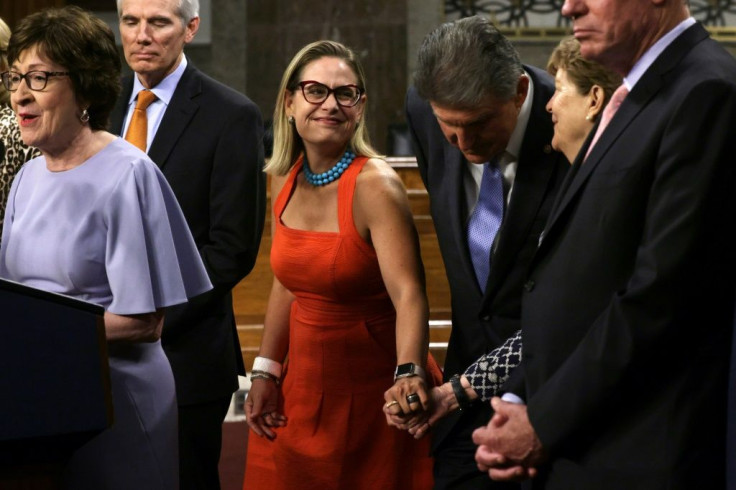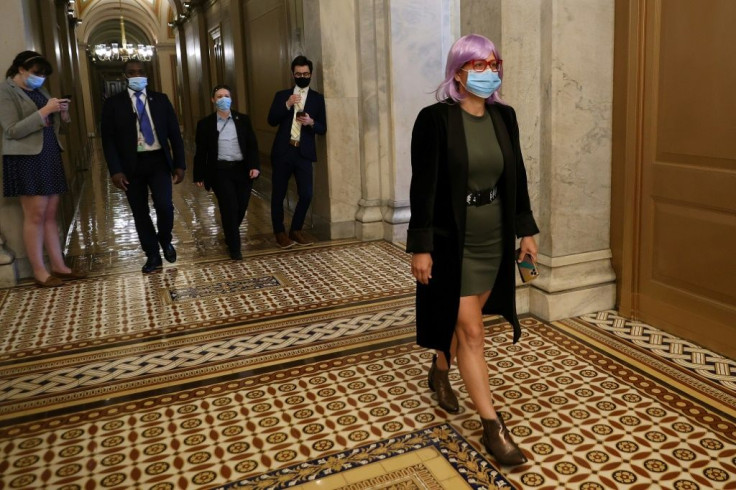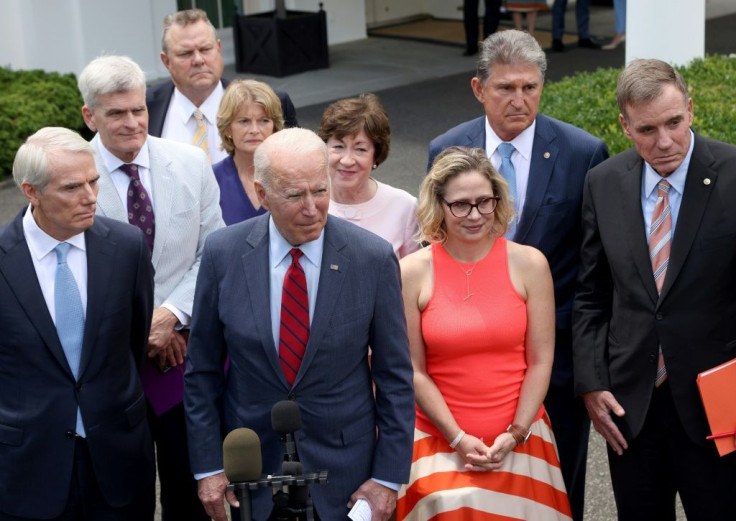Kyrsten Sinema: Enigmatic US Senator Behind Infrastructure Bill
With her brightly colored wigs, striking clothes, Ironman feats and unusual life story, Kyrsten Sinema stands out in the staid US Senate.
But it was the centrist Democrat's discretion that allowed her to garner bipartisan support for the huge infrastructure bill passed by the upper house on Tuesday.
The $1.2 trillion package to improve the nation's roads, bridges, ports and broadband networks is a major political victory for President Joe Biden, and Sinema played a key role in making it happen.
Unlike most of her colleagues, the 45-year-old senator from Arizona rarely stops to chat with the reporters who swarm the halls of the US Capitol.
She spent the past few weeks behind closed doors holding intensive discussions with Democrats and Republicans, quietly hammering out details of the infrastructure bill.

In a speech on the Senate floor on Monday, Sinema said passage of the legislation was a sign that bipartisanship can still be achieved in bitterly divided Washington.
"What we have here today is what it looks like when elected leaders set aside their differences, shut out the noise and distractions, and just focus on forging common ground around our shared values," she said.
"This is what it looks like for elected leaders to ignore the extreme rhetoric and the cheap political attacks and put energy instead into delivering lasting results that matter to everyday Americans."
Sinema would appear at first glance to be an unlikely bridge between Democratic senators and their more conservative Republican colleagues.
She is the first openly bisexual US senator and the only member of the 100-seat chamber not to claim any religious affiliation.

Sinema, who was born in Tucson, Arizona, had what her official website describes as "some tough times" growing up.
"Her family struggled to make ends meet, and for a while they were even homeless," according to her website. "But they got by thanks to family, church, and hard work."
Sinema grew up a Mormon but left the Church of Latter-Day Saints after attending Brigham Young University in Utah.

Sinema cites as her inspiration another senator from Arizona who was also known for being unconventional -- the late John McCain.
"I promised Arizonans something different," Sinema said in her speech to the Senate.
She said she was following the example of McCain who "refused to demonize the opposition party" and sought bipartisan agreement.
Sinema's shuttling between Democrats and Republicans was done at one point on crutches after she broke a foot running a marathon.
She has competed in a number of Ironman events which consist of a 2.4-mile swim, a 112-mile bike ride and a 26.2-mile run.
Sinema's key role in crafting the infrastructure bill earned her an invitation to the White House from Biden and his gratitude, but she is not as well liked by some members of the left-wing of the party.
She and another moderate Democrat, Joe Manchin of West Virginia, are seen by progressives as the biggest obstacles to eliminating the requirement that 60 votes are needed in the Senate to move legislation along.
While Manchin is a Democratic oddity in a solidly Republican state, Sinema represents a state that has been trending Democratic in recent years and which voted narrowly for Biden in 2020.
A member of Arizona's Green Party before becoming a Democrat, Sinema won election to Arizona's House of Representatives in 2004 and later the state Senate.
She was elected to the US House of Representatives in 2012 and won reelection in 2014 and 2016.
In 2017, she announced her candidacy for the US Senate seat held by Republican Jeff Flake, who subsequently retired from politics, and she eked out a narrow victory over Republican candidate Martha McSally.
Sinema chose to be sworn in on a copy of the US Constitution instead of the traditional Bible.
Last year, she infuriated the progressive wing of the party by giving a literal thumb's down on the Senate floor to a proposal to raise the minimum wage.
Sinema responded to the criticism with an Instagram picture of herself sipping a colorful drink and wearing a ring that spelled out a crude message to her critics.
Brianna Westbrook, a Democratic candidate for the Arizona House of Representatives, called the picture "a gut punch to the people that worked their ass off to elect her."
Sinema did not respond.
© Copyright AFP {{Year}}. All rights reserved.





















